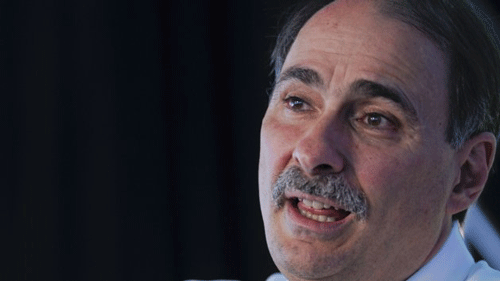Who Can you Trust on Your Way to the Top–Do the Right People Have Your Ear?
As a senior manager in an organization, the most important question you ask yourself every day is, “Who should I listen to? Who can I trust?” We succeed or fail depending on finding the right answer every day.
In the field of politics George W. Bush and Barack Obama have something very important in common—they picked two unlikely advisors who helped them win two terms in office, something ever more difficult in today’s combative world of public opinion. Organizational executives today also must pick the right advisors.
Today everything depends on the roar of the crowd, whether that crowd is your team members, the board, customers, investors, or analysts. This world is too
complicated to navagate without someone to turn to who will give you perspective.
Everyone knows it’s lonely at the top—and dangerous. That’s why no matter how smart you are you, can’t go it alone. But your experience tells you that people around you can’t tell you what you need to know. In fact, you have a frame of reference that no one around you has, but the paradox is you still have to have advisors.
But who are these advisors?
1. The most fundamental advisory group to top executives are other top executives—but beware. You should always seek their take on key issues you are facing, but some of the worst advice you’ll ever get is from other executives who are your peers who are confident and insistent in the advice they are giving. They can be brilliant, but don’t have the context of the issues you are now facing. The biggest mistake that a president could make is to call up only ex-presidents for advice on day-to-day
2. Find advisors who have rapport with you—and a knack to know—and they may be unlikely choices. It is inconceivable that either Karl Rove or David Axelrod could win political office. Bush’s top strategist, Rove, began doing political mail-outs for Texas politicians. He developed an uncanny knowledge of every voting precinct in the state of Texas and what issues moved them, which he took to the national level. On the road to their success as senior advisors, Rove and Axelrod became astute strategists.
3. Be sure your advisors—who sometimes today are executive coaches—have broad experience in organizations and an effective set of organizational tools. They must be able to gather the data that you need to know in order to guide the organization I use assessments, interviews, and facilitated sessions to pull together the facts that help executives make decisions.
4. Never work with advisors who want to “declaw the lion.” So many professionals today who are executive coaches or advisors believe that their role is to make their clients more kind and gentle—we call it “declawing the lion.” Senior executives are called on to take quick and decisive action for organizational outcomes. I work with executives to help them relate effectively to people within organizations, I work with them on effective communication and interrelations, but we also work with executives to hold people and organizations accountable for measurable results and to achieve organizational outcomes.
Early in my career as a young political communications strategist, I wrote speeches for aspiring politicians. I observed that they lived or died by their inner circle. As I moved into the world of organizations, I saw the increasing need for executives to have that same type of inner circle. It may be even more difficult to find that in the corporate world than the world of politics, but the search is well worth it.






